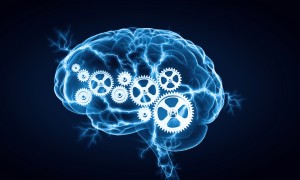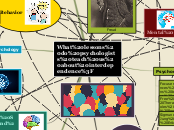What lessons do psychologists teach us about interdependence?

Memory
Sensory Memory
Impressions of sensory information after the original stimuli have ended.
Short Term Memory
Small pieces of information readily active in mind for a short period of time.
Long Term Memory
The holding of any information indefinitely. Can be recent or in the far past.

Mental Health
Mental Disease
Psychotic disorders, Dementia's, Developmental/processing disorders.
Psychotic disorders: Schizophrenia. An altered state of reality.
Dementia's: Alzheimer's: Late stage of Dementia where the patient will forget basic things like their name.
Developmental/processing disorders: Autism. An impairment in social interaction and communication skills.
Typically Biological
Can be moderated through therapy, diet, and medication.
Mental Illness
Typically Environmental
Can be cured through therapy and medication.
Mood disorders, anxiety disorders, eating disorders.
Mood Disorders: OCD (Obsessive Compulsive Disorder). An obsessive urge to do something exactly the way you want.
Anxiety Disorders: Depression. Negative thoughts on many different aspects of life.
Eating Disorders: Anorexia Nervosa. When one does not eat due to factors such as their own thoughts of them becoming fat.
Psychodynamics
Focuses on life experiences and the connections between the conscious and the unconscious mind.
Free Association (Talk Therapy), Social Roles, Archtypes - Representations of Self.
Sigmund Freid, Carl Jung, Karen Horney, Erik Erikson.

Identity
Environmental
Friends
Hobbies, Interests, behaviours
Family
Discipline, habits, behaviours.
Society
Expectations, limits, behaviours.
Biological
Parents DNA.
Psychical Characteristics
Eye Colour
Skin Colour
Hair Colour
Behavioral Psychology
Focuses on learning and human behaviour.
Pavlov's Dog - Classical Conditioning, Little Albert, The Skinner Box.
Ivan Pavlov, John B. Watson, B. F. Skinner.
Behavior

Influences on Behavior
Social Thinking
Interactions with people cause us to think certain things about them. What we think about them will determine our behavior towards them.
Motivation
The desire to do something. Can be Intrinsic (Naturally belonging) or (From outside).
Attitudes
Formed by environment (People, places, things).
Implicit
What we do not consciously think about.
Explicit
What we consciously thin about.
Mental/Physical Health
Behavior may be influenced consciously, unconsciously or involuntarily according to our state of health.
Perspectives on behavior
Sigmund Freud
Behavior is influenced by the Id and Super-Ego.
Jean Piaget
Four operational learning stages as children. Development in thought process.
Erik Erikson
Key stages of life model. Positives and negatives are identified. Each stage is resolved as it comes.
Subtopic
Cognitive Psychology
Focuses on the processes of the brain
The IQ Test, Bobo Doll Experiment, Linguistic Theory.
Jean Piaget, Noam Chomsky, Albert Bandura, Elizabeth Loftus.
The Brain, Sensation, and Perception

The Brain
The functioning and processing part of our body.
Sensors
Parts in our brain that help us identify physical things.

The Brain and the Sensors
The Mind
Conscious part of our self.
Perception
How our mind views certain things and situations that don't have to be physical things.

Things can have different meanings depending on who you are.
Humanistic Psychology
Focuses on the Individual
Maslow's Hierarchy of Needs Pyramid, Self-Actualization, Client Centered Therapy.
Abraham Maslow, Viktor Frankl, Carl Rogers.
False Memories
We sometimes remember things that never happened. This may be due to outside influence or factors which can't be identified.
Individual Personality
Our favourite things, our least favourite things, how we see others, how we see ourselves, and what we believe our purpose is.



:max_bytes(150000):strip_icc()/2794863-operant-conditioning-a21-5b242abe8e1b6e0036fafff6.png)
:max_bytes(150000):strip_icc()/2794859-article-classical-conditioning-5ac50cc9c5542e0037d54692.png)


